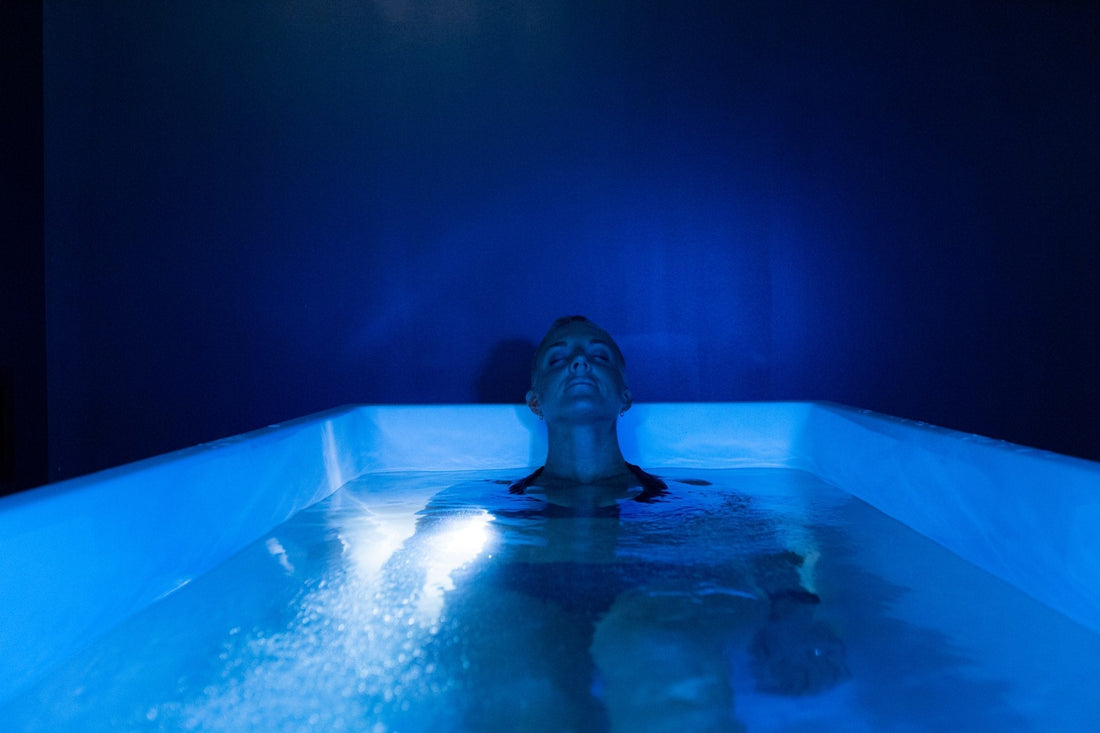
Fatigue to Focus: The Mental Benefits of Contrast Therapy
Mental health has become an increasingly important topic in today's fast-paced world. The need for effective, accessible tools to manage stress, anxiety, and depression is more crucial than ever. Contrast therapy is gaining popularity as a tool to help with symptoms using a unique combination of an infrared sauna and cold plunge designed to promote physical recovery, enhance mood, and support mental well-being.
While athletes have long used this method for physical recovery, its benefits extend beyond muscle soreness and injury prevention. In fact, research suggests that contrast therapy can significantly improve mental health, making it a valuable addition to anyone’s wellness routine.
The Science of Contrast Therapy
At its core, contrast therapy relies on the body’s physiological response to changes in temperature. When exposed to heat, blood vessels dilate, improving circulation and helping muscles relax. Cold exposure causes vasoconstriction, or the narrowing of blood vessels, which reduces inflammation and promotes recovery.
But beyond the physical benefits, these alternating temperature shifts can profoundly affect the brain. Heat exposure from an infrared sauna can trigger the release of endorphins—often referred to as the body’s “feel-good” chemicals—while cold exposure activates the body’s fight-or-flight response, leading to a rush of adrenaline and other stress hormones that can improve alertness and mood.
How Contrast Therapy Benefits Mental Health
While most people associate contrast therapy with physical recovery, its mental health benefits are becoming more widely recognized. Here are some of the key ways contrast therapy can improve mental well-being:
1. Stress Reduction
Stress is a major contributor to mental health issues like anxiety and depression. One of the most immediate effects of contrast therapy is its ability to reduce stress. The combination of heat and cold can help balance the autonomic nervous system, shifting the body from the fight-or-flight state into a more relaxed, parasympathetic state. This helps calm the mind and improve sleep, which is essential for managing stress levels over time.
Studies have shown that spending time in an infrared sauna can lower cortisol levels, the primary stress hormone, by up to 30%. Lower cortisol levels are associated with reduced anxiety, making regular contrast therapy a powerful tool for those looking to manage stress more effectively.
2. Improved Mood and Cognitive Function
Both hot and cold therapy have been shown to improve mood by influencing neurotransmitter production. Infrared saunas can increase the production of serotonin, a neurotransmitter that plays a key role in regulating mood and happiness. Cold exposure can increase dopamine levels linked to motivation and focus.
For individuals struggling with mood disorders, contrast therapy can act as a natural mood enhancer, offering immediate relief while promoting long-term mental stability. The combination of serotonin and dopamine boosts can help combat feelings of sadness, lethargy, and low motivation, making contrast therapy a valuable practice for those coping with depression.
3. Enhanced Resilience to Stress
One of the most fascinating aspects of cold exposure is its ability to build resilience to stress over time. Cold plunges activate the body’s natural stress response, but with regular exposure, the body becomes better at managing this response, leading to greater resilience to stressors in daily life. This phenomenon helps individuals build mental toughness and emotional resilience, equipping them to handle life’s challenges more easily.
Incorporating cold therapy into a routine can help those who suffer from anxiety disorders by teaching the body to adapt to stress in a controlled, therapeutic environment. Over time, this resilience transfers to other aspects of life, helping individuals manage daily stress with greater ease.
4. Improved Sleep Quality
A night of restful sleep is essential for maintaining mental health, yet many people struggle with insomnia or poor sleep quality. Contrast therapy can help improve REM sleep in multiple ways.
The heat from an infrared sauna encourages the production of melatonin, the hormone responsible for regulating sleep cycles. After a session, the body cools down, which mimics the natural drop in body temperature that occurs before sleep, signaling the brain that it’s time to rest. Cold therapy, particularly when used in the evening, can also help regulate sleep by reducing the body’s core temperature, which promotes deeper, more restful sleep.
Better sleep translates to improved mood, cognitive function, and emotional regulation—all of which are essential for maintaining good health.
Mind Follows Body
One of the key reasons contrast therapy is so effective for mental health is its focus on the mind-body connection. By engaging the body in physical recovery and relaxation, contrast therapy naturally extends its benefits to the brain. When the body feels good, the mind follows– a more holistic approach to mental wellness.
The mindfulness required during contrast therapy sessions also plays a role in improving mental toughness. Whether focusing on the breath during a cold plunge or embracing the warmth of the sauna, these moments encourage mindfulness. This mindful state not only helps reduce anxiety during and after your session but can help reduce anxiety long-term as well.
Contrast therapy offers a unique and effective way to support both physical recovery and mental health. From reducing stress and improving mood to enhancing resilience and sleep quality, the benefits of contrast therapy are wide-reaching. For those looking to improve their mental well-being, incorporating contrast therapy into a wellness routine can provide both immediate relief and long-term benefits, making it a valuable tool in the fight against anxiety, depression, and other mental health challenges.
Book Your First Session
Take control of your mental health with contrast therapy! Experience the powerful benefits of infrared sauna and cold plunge sessions to reduce stress, boost mood, and enhance cognitive function. Book your session today and start feeling better—naturally!
